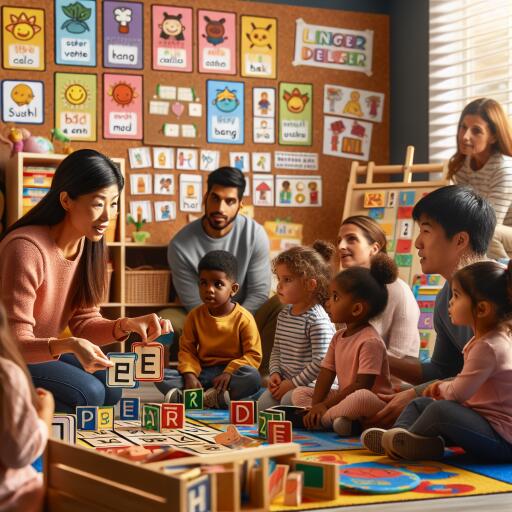The Journey of Multilingual Upbringing: Exploring Language Development in Preschoolers
In the dynamic landscape of today’s global society, families find themselves navigating the rich waters of multilingualism, particularly when it comes to the upbringing of their children. The process of learning and integrating multiple languages into the fabric of daily life presents both opportunities and challenges, especially within the context of preschool-aged children. This exploration delves into how children aged 2 to 4 years old develop their heritage language within multilingual, transnational families, shining a light on the intricate dance between language socialization and family language policies.
Understanding how young learners acquire their heritage language amidst a multilingual backdrop involves looking closely at the routines, interactions, and the overall environment that surrounds them. In many families, particularly those located in countries different from their country of origin like Sweden, the desire to cultivate a strong foundation in multiple languages is driven by a range of motivations, from maintaining cultural ties to enhancing future educational and professional opportunities for their children.
Through an in-depth analysis, it becomes apparent that language development in such contexts is not a straightforward path but a journey marked by fluidity and adaptation. The role of family, especially parents who strive to embed their native language—such as Russian—in their children’s repertoire while also embracing the societal language, is pivotal. This dual focus requires a nuanced understanding of language as a living, breathing entity that is deeply intertwined with identity, culture, and connection.
The exploration of language development in preschool-aged children in bi- or multilingual families reveals a rich tapestry of strategies employed by parents to foster an environment where multiple languages flourish. These strategies range from deliberate language planning within the home to more organic forms of language acquisition through social interactions, both within the family and the wider community. The goal is not merely bilingualism but multilingualism, where children can effortlessly navigate between languages, thereby enriching their cognitive, emotional, and social growth.
Video-ethnographic fieldwork offers a unique lens through which to view these experiences, providing insights into the day-to-day realities of families committed to raising multilingual children. By closely observing the interactions and daily routines of three bi- or multilingual families in Sweden, a comprehensive understanding of how language policies are not just formulated but lived emerges. It highlights the dynamic and fluid nature of language learning, where children are not passive recipients but active participants in their own socialization process.
The landscape of multilingual upbringing is complex, with each family navigating its unique set of challenges and triumphs. The aspiration to meld multiple languages into the cornerstone of family life is a testament to the evolving nature of language and identity in a globalized world. It underscores the importance of supporting children in their journey to become multilingual citizens, equipped with the linguistic tools to bridge cultures and forge connections across borders.
In conclusion, the study of language development in preschool-aged children within multilingual, transnational families unveils the profound impact of language on personal and cultural identity. It also provides valuable insights into the strategies that can help facilitate the successful acquisition of multiple languages in early childhood. As families continue to navigate the complexities of multilingualism, the lessons learned from these explorations can help pave the way for more effective language socialization practices, ultimately enriching the tapestry of family life in our increasingly interconnected world.










